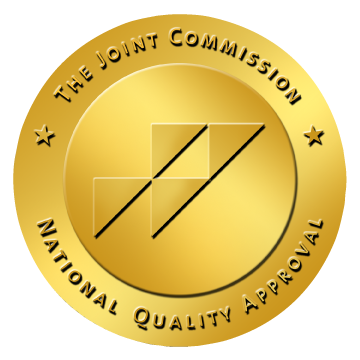Substance use disorder is one of the most difficult trials a couple can face. Watching your partner grapple with addiction can cause a whirlwind of emotions — you may feel distressed watching them suffer the mental and physical tolls of addiction or anger about how their addiction affects your relationship. While addiction can be a breaking point for many couples, separation is not inevitable, and recovery is possible. While recovery can’t be forced, you can take steps to help your loved one reclaim their life, improve your relationship, and protect your well-being.
Addiction is characterized by compulsive drug seeking and use despite the negative consequences that may result (National Institute of Health). As much as we think it won’t happen to us, addiction impacts millions yearly.
The causes of addiction are highly complex and may vary from person to person. Some may develop an addiction after experimenting with drugs, while others may develop dependency after using drugs they’ve been legally prescribed. People with addiction may use drugs to cope with stress, trauma, or grief if they cannot use healthy coping mechanisms. It’s important to remember that addiction can happen to anyone at any time, regardless of their age, background, or economic status (SAMHSA).
Despite your best intentions, you can’t force your partner into recovery. You can, however, encourage them to get help and assist with finding resources. This may start with a simple conversation. Consider the following guidelines when planning an initial talk with your loved one.
The line between supporting your partner and enabling their addiction is often thin and difficult to recognize. Enabling is any behavior that helps your partner continue their drug use, while support is a behavior that makes it easier to remain sober. It’s often a thin line but may look like:
While it may feel like you’re helping your partner, engaging in these or similar behaviors only hurts them in the long run. Instead, be clear about the support you’re willing to offer. Identifying addiction treatment centers, taking them to rehab, and negotiating insurance are ways you can show support without helping addiction continue.
Set strong boundaries around things that are within your control, like not allowing drug use at home, refusing to bail them out of jail, or cutting off financial help. This may anger your partner but will ultimately help them see that you are no longer willing to be an accomplice in their addiction. Feeling the consequences of their drug use can signal that they will need to make changes. You can do all these things and still let them know they are loved.
You can only support your partner in a healthy way if your own needs and boundaries are respected. Don’t tolerate disrespectful behavior that may coincide with addiction, like lying, cheating, or theft. Understand that you may need to seek out your support and consider working with a therapist or support group.
If your partner’s behavior is abusive or leaves you feeling unsafe, contact law enforcement or a crisis intervention specialist immediately. While supporting your partner may be important, your own safety is your number one priority.
Contact New England Medical Group for guidance on the next steps and resources. We provide flexible, comprehensive substance abuse treatment services, including individual and group therapy, mindfulness groups, and aftercare planning.
